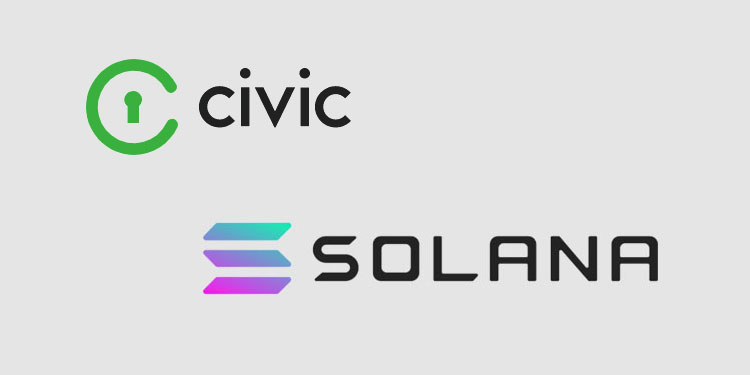Civic, a blockchain identity solutions provider, today announced a technology integration with Solana, a project implementing a new, high-performance, permissionless blockchain. The collaboration will allow for improved privacy, regulatory compliance, and ease-of-use for digital identity.
“Early blockchains have been good testing grounds, but with high fees and slow transactions, many consumers and applications are simply priced out of the ecosystem,” said Vinny Lingham, co-founder, and CEO of Civic. “Now, with Solana, we’re making identity foundational to the blockchain and broader ecosystem that’s ready for the future and built to scale for mainstream consumption.”
Currently, high ETH transaction fees are blocking the mainstream adoption of DeFi. These high rates more than erase any returns for the average investor, making an investment in the ecosystem unattractive and unsustainable. Solana’s low fees scale as the ecosystem grows, and with Civic’s identity-based key management, key recovery, and practical experience, Civic will help make financial tools more accessible to mainstream consumers.
Civic + Solana
In addition to the identity elements Civic is bringing to the Solana ecosystem for any project to leverage, the company is also building a consumer-friendly gateway to DeFi on Solana starting with a wallet experience that enhances the vision started with their mobile app on Ethereum. The wallet will offer intuitive design, identity-backed key management, and a safe place to store tokens
Because of Solana’s technology, the wallet will be high-speed and have low transaction fees. The company plans to eventually merge the new wallet with its existing mobile Civic Wallet. Civic believes that identity will be a necessity for businesses in Solana’s ecosystem in order to comply with global regulations in the near future if DeFi is to truly scale for mainstream consumer adoption.
These new products will offer more privacy and a more secure experience for DeFi products and other application-layer technologies.
Civic uses Identity.com’s open-source identity verification ecosystem to power its identity products. Identity.com recently announced its own integration with Solana, focusing on refining decentralized identities and the next version of its marketplace.
Together, the organizations are building consumer-first, privacy-focused frameworks for better compliance and regulation, so that more safeguards may be brought in as the industry scales.
“Identity verification is a key component of the web2 stack, and I am thrilled to see companies like Civic building to support a decentralized web3 world,” said Anatoly Yakovenko, President of the Solana Foundation.
As leaders in the decentralized identity space, Civic is focused on a few real-world applications of its blockchain-powered technology. When a user signs up with Civic Wallet, they are authenticated as a real person by securely verifying their identifiable information and incorporating groundbreaking blockchain-based technology. Once they have a Civic Wallet, users are able to selectively share parts of their verified identity with third parties, for example, purchasing age-restricted products anonymously.
The company also recently launched a flexible identity verification product that helps organizations verify identity quickly with minimal integration.
Solana is a fast, low-cost Layer-1 blockchain designed to scale with advancements in hardware technology. Currently, Solana can handle up to 50,000 TPS with sub-second finality and transaction fees as low as $0.00001. By comparison, Ethereum supports a maximum of 15 TPS. Most importantly, Solana’s speed and low fees scale as the ecosystem grows without sacrificing censorship resistance or security. Solana has already seen growing interest in the DeFi space with established DEXs and AMMs, such as Serum and Raydium, already processing billions of user transactions.
